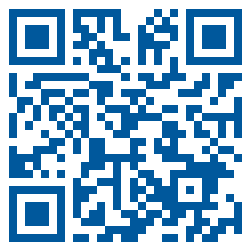
 Specialist Dietitian in Liverpool inLiverpool
Specialist Dietitian in Liverpool inLiverpool PUBLISHED TUE 14 MAY 2024 Jump to job information section
Band 6: £35,392 to £42,618 a year
per annum
PERMANENT
Liverpool Heart and Chest Hospital rppoWWHA
Job description
We don't yet have more details about this opportunity -- we're working on it -- please check back soon!
Not sure?
If you're interested in this role but you have questions or you're not yet ready to apply, then please book a quick call with us and we'd be happy to answer any questions you have and tell you more about the role.
If you're interested in this role but you have questions or you're not yet ready to apply, then please book a quick call with us and we'd be happy to answer any questions you have and tell you more about the role.
Requirements
See the job description for full role requirements.
Benefits
Benefits are provided by the employer and will be confirmed during your application.
Is it a match?
A quick tap lets us tune future job matches for you
Location
Salary & benefits
Role duties
Working pattern
More information related to this job opportunity, from jobsincare:
Useful skills for a Specialist Dietitian:
Click to view
To work as a Specialist Dietitian in the UK, you will need a combination of educational qualifications, clinical skills, and interpersonal abilities. Here’s a breakdown of the essential skills and qualifications you should have:
Educational Qualifications:
1. Degree in Dietetics: A recognized BSc (Hons) in Dietetics or an equivalent qualification is essential. This usually involves completing an accredited program that includes both theoretical and practical coursework.
2. Registration with Health and Care Professions Council (HCPC): You must be registered with the HCPC to practice as a dietitian in the UK.
3. Postgraduate Qualifications: While not always mandatory, obtaining a Master’s degree or additional certifications in specialized areas (e.g., sports nutrition, pediatric dietetics) can enhance your expertise and job prospects.
Clinical Skills:
1. Assessment Skills: Ability to conduct comprehensive nutritional assessments and understand various dietary needs.
2. Care Planning: Skill in developing, implementing, and reviewing dietary care plans tailored to individual patient needs.
3. Clinical Knowledge: In-depth understanding of nutrition and dietetics related to specific health conditions, such as diabetes, obesity, gastrointestinal disorders, and others.
4. Evidence-based Practice: Knowledge of current research and guidelines in nutrition to provide evidence-based recommendations.
Interpersonal Skills:
1. Communication Skills: Strong verbal and written communication skills to explain nutritional concepts clearly to patients, caregivers, and healthcare teams.
2. Empathy and Compassion: Ability to build rapport with clients, understand their concerns, and support them in making dietary changes.
3. Collaboration: Work effectively as part of a multidisciplinary team, liaising with other health professionals such as doctors, nurses, and psychologists.
Organizational Skills:
1. Time Management: Ability to manage your workload efficiently and prioritize tasks.
2. Documentation: Skill in maintaining accurate and detailed patient records, reports, and care plans.
Professional Development:
1. Continuous Learning: Commitment to ongoing professional development and staying updated on the latest research, guidelines, and technologies in dietetics.
Technical Skills:
1. Nutritional Analysis Tools: Familiarity with software and tools used for dietary analysis and management.
2. Technology Competence: Ability to use electronic health records and telehealth platforms effectively.

inLiverpool
53.41120147705078 -2.8979899883270264 Liverpool, UK 
Locations
are approximate.
This image is not representative.
Learn more

Scan with your phone to return to this page later.